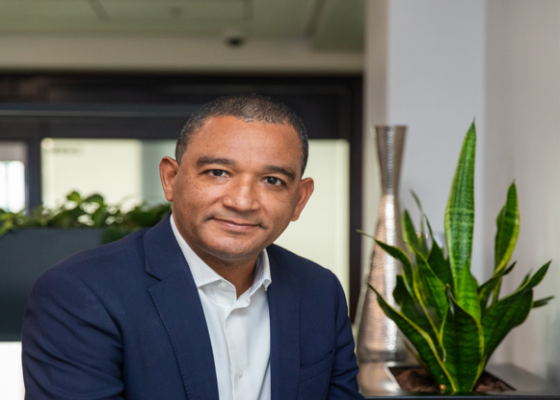Saving for your child’s education
15 AUGUST 2023
Proving your child with a great education can come at a considerable cost. We chat to financial planner Busi Moeng on what to consider. Part of protecting your child’s future is actively planning for their education, which comes at a cost. Financial planner Busi Moeng shares with us the importance of putting a financial plan in place that allows your child the ability to study without the financial challenges that often come with higher education.
Part of protecting your child’s future is actively planning for their education, which comes at a cost. Financial planner Busi Moeng shares with us the importance of putting a financial plan in place that allows your child the ability to study without the financial challenges that often come with higher education.
For the immediate future, you can start planning ahead for the next school year by purchasing your child’s stationery and uniform ahead of time. Break it down into monthly purchases using your RCS Store Card and get up to 55 days interest-free* on each purchase. Having being raised by a single parent, Moeng is now a mother herself and a regular on SABC 2’s Raising Babies 101 and radio shows around financial planning and is passionate about educating people around financial wellness. We asked her a few questions and here’s what she had to share.
Having being raised by a single parent, Moeng is now a mother herself and a regular on SABC 2’s Raising Babies 101 and radio shows around financial planning and is passionate about educating people around financial wellness. We asked her a few questions and here’s what she had to share.
What are the challenges most parents face when it comes to saving for their kids’ education?
In my experience, parents often don’t research how much tertiary education costs well ahead of time. They also don’t know what their children want to study and often find out when their children are in high school. Kids of today are exposed to more career options and parents should educate themselves so we can nurture and invest in their interests.
What are the common misconceptions around saving for your child’s tertiary education?
One of the concerns parents often have is that they may start saving for their child’s higher education, but if they choose not to study, their investment will be wasted, when in actual fact, they will still be able to access those funds. Some parents also don’t invest in the most appropriate savings methods. You need to consider what the longer-term plan is and what will yield the best interest rates. A 32-day account for example may not be the right fit for your child’s future education.
What practical advice can you share on starting an education fund?
Start with speaking to a financial adviser and do your own research, including what your children want to pursue so you know what you are saving for. This may include not only the hard costs of tertiary education such as the fees and residential fees but factor in clothing, food, transportation and even pocket money they may need.
For some, there may be a perception that financial planners are costly. How would you encourage parents to consider working with one?
Once again, do your research and ask yourself what legacy would you like to leave for your kids, what would you like your kids to learn from you. It’s important to familiarise your children with what a financial planner is so they too can make healthy financial decisions in their adulthood.
How can a financial planner assist in saving for your child’s education?
A financial adviser can sit down with you and assess your financial needs and goals. They can then recommend the best solution for you based on whether you need a short-, medium- or long-term solution, and what adjustments you would need. This will also be an ongoing exercise as your needs change. They will be able to advise on whether for example an educational plan or a certain 15 or 18-year investment plan would be more suitable for you and your family. It’s also crucial to consider any life-changing event that may affect you and in turn your family. This means you’ll need to consider things such as life cover and a will which will be able to safeguard their future should you pass away. I call this wholistic financial advice, taking into consideration everything, including how you budget.
When is the right time to start?
It’s never too early. As soon as you and your partner start planning to grow your family, you can start doing the necessary research. Think about what kind of schools and tertiary institutions you’d like your children to attend, how much they currently cost and taking the inflation rate in interest into account, how much they’ll cost in the next 7 or 12 years.
START PLANNING FOR YOUR AND THEIR FUTURE
Start with the basics, from learning how to budget, to keeping your credit score in great condition so you can access credit with more of our financial wellness articles.
*Service and initiation fees apply.



